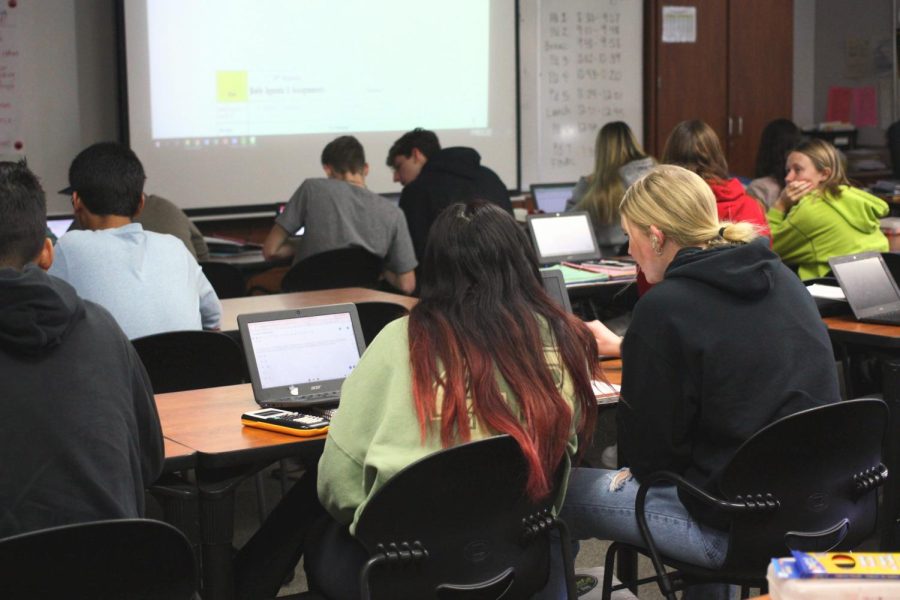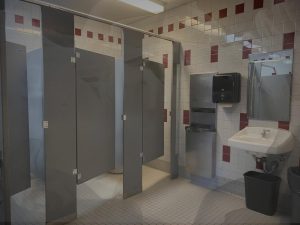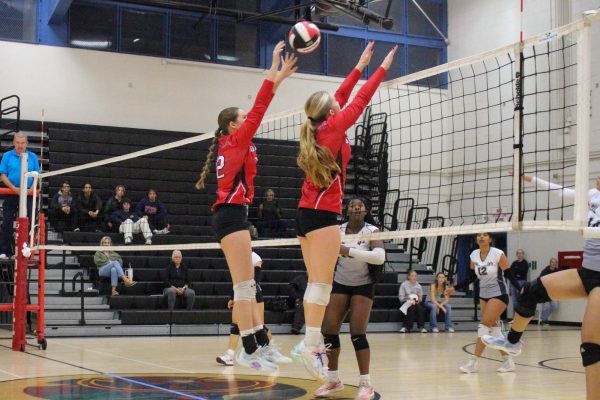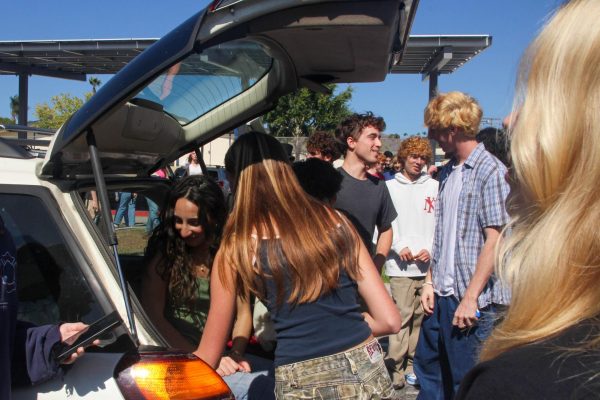A guide to Advanced Placement Calculus and Statistics
In Michelle Frumkins’ Advanced Placement (AP) Statistics class, students chatter amongst each other, debating the possible ways to solve an equation.
January 31, 2023
This article is a continuation of the Advanced Placement (AP) series that helps students understand what to expect when signing up for AP classes this spring at Foothill Technology High School (Foothill Tech).
Each spring, students eagerly scroll through class choices and meet with their counselors, anticipating what the next school year’s classes will hold. While some may have been anxiously planning their selection since freshman year, others may be lost on where to start, especially when it comes to math. At Foothill Tech, there are numerous math elective options available after completion of Math 1, 2 and 3, but right now we will be focusing specifically on three of them: AP Statistics, AP Calculus AB and AP Calculus BC.
Taught by Wayne Powers and Michelle Frumkin, these classes are meant to prepare students to take the AP exam sanctioned by the College Board in the spring, as well as provide more advanced options for students who wish to continue their math education beyond a high school level. Calculus BC and Statistics are both taught by Mrs. Frumkin, while Calculus AB is taught by Mr. Powers.
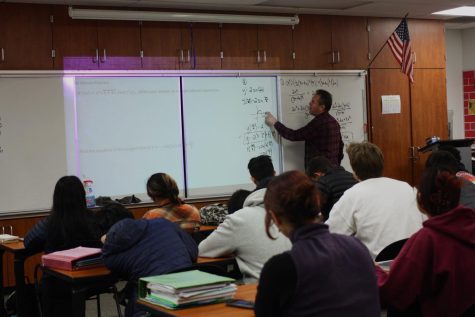
Statistics covers many components such as probability and inference — which is how to make decisions from data, how to display distributions of data and linear regression, which includes things such as scatter plots and outcome prediction. While the technicality of terms used to describe this class may be intimidating, teacher Michelle Frumkin explains that the class isn’t necessarily all that hard. “I feel like hard is relative to people, so [it depends] on your experience in your Math 1, 2, 3 series.” She continued to state, “Students that are willing to work hard, they’re willing to come in and ask questions, they’re willing to try again if they fail rather than throw their hands up, they do really well every year.”
In both classes, however, one big hurdle that many students find hard to overcome is the amount of homework. “It’s good to know going in, you’re going to have homework every class in both classes,” said Mrs. Frumkin. Wayne Powers, the Calculus AB teacher, agreed: “My experience has been that that’s the first big hurdle. People that take the class are shocked at how much time they’re spending on the class.” However, it seems that once students understand the time the classes take, they become much easier to manage.
Calculus is “the study of change, and how things change,” according to Mr. Powers. Calculus is broken into two classes, one taught by Powers and the other by Frumkin — the main difference is that AB follows about one semester of college calculus whereas BC follows two. Within the AB class, it’s split up into two basic strands: differential and integral calculus. Between these two strands, Powers said, “We spend three-fourths of our time on differential calculus, and then we finish up with this more challenging integral calculus.” In Frumkin’s class, students learn the material taught in AB in addition to a few other college-level concepts in the second semester, including infinite series.
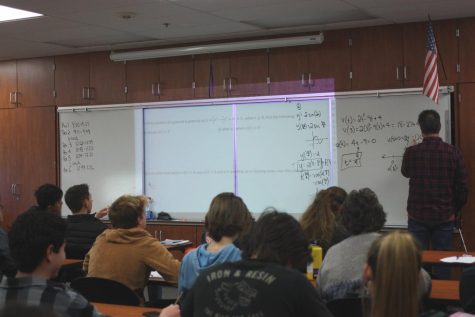
The class a student decides to take can have many determining factors, but if there’s one thing to know about Calculus it’s that you need to “be responsible for the math,” Powers said. He expanded on that thought by adding, “Don’t just think that because you’re sitting in the calculus class and you’re writing things down that I’m writing on the board … that you know calculus. You might not; you have to really be honest with yourself, like ‘do I know what I’m doing?’”
When asked who should take this class, Powers answered, “anyone that does reasonably well in Math 3 and has a desire to learn calculus.” However, he also shared this bit of wisdom: “I think I would also warn people on the way in that, don’t think it’s an easy ride, because it’s not impossible, but it’s not easy.” Overall, Calculus AB can be difficult, but if you go into the class understanding it has a bit of homework and will take some time, you will have the tools to be successful.
Statistics covers many areas, from probability, to distribution of data, to graphing. Frumkin describes Statistics as “more of a science class” as it is “the science of analyzing data,” whereas Calculus “falls squarely within mathematics.” One difference to note between Calculus and Statistics, however, is that Statistics uses many more collaborative projects to model the math: “there’s a lot more hands-on, activity based stuff in [Statistics]. There’s not very much of that in Calculus.” Some of the projects students may do in Statistics include “what proportion of M&M’s are red?” or modeling if one can pull a toy car back to try and make it hit a certain spot based on mathematical predictions.
If there was one thing Frumkin could say about AP math classes, it would be, “Don’t be afraid to try an AP class. A lot of people are scared that after being in a regular class or honors class that they don’t have what it takes, but the true predictor of success in either class is ‘are you willing to work at it?’”
Both classes follow a similar class pattern that involves going over homework, introducing a new idea, then expanding on that idea and letting the students work at it to better understand. In Calculus AB, Powers said “I try to do clear examples and I put homework together that’s representative of the examples we did and just repeat it again the next day,” adding that they take quizzes about once a week. Statistics is taught similarly, but with more collaboration involved: “in Stats, we do some of that more lecture-practice based, but they also do investigations into data.” Frumkin added that sometimes she will give the students sets of data and “[They’ll] learn at their own pace how to use the calculators [and] look at sets of data and see what to do with it, without having really a guiding question.”
While an AP class in itself may seem daunting, especially one involving math, it can be a useful and sometimes fun experience. Understanding that the class is going to be a little harder than you may be used to, and likely take some more time to understand and do the homework, will also help with being more successful in your class endeavors.


